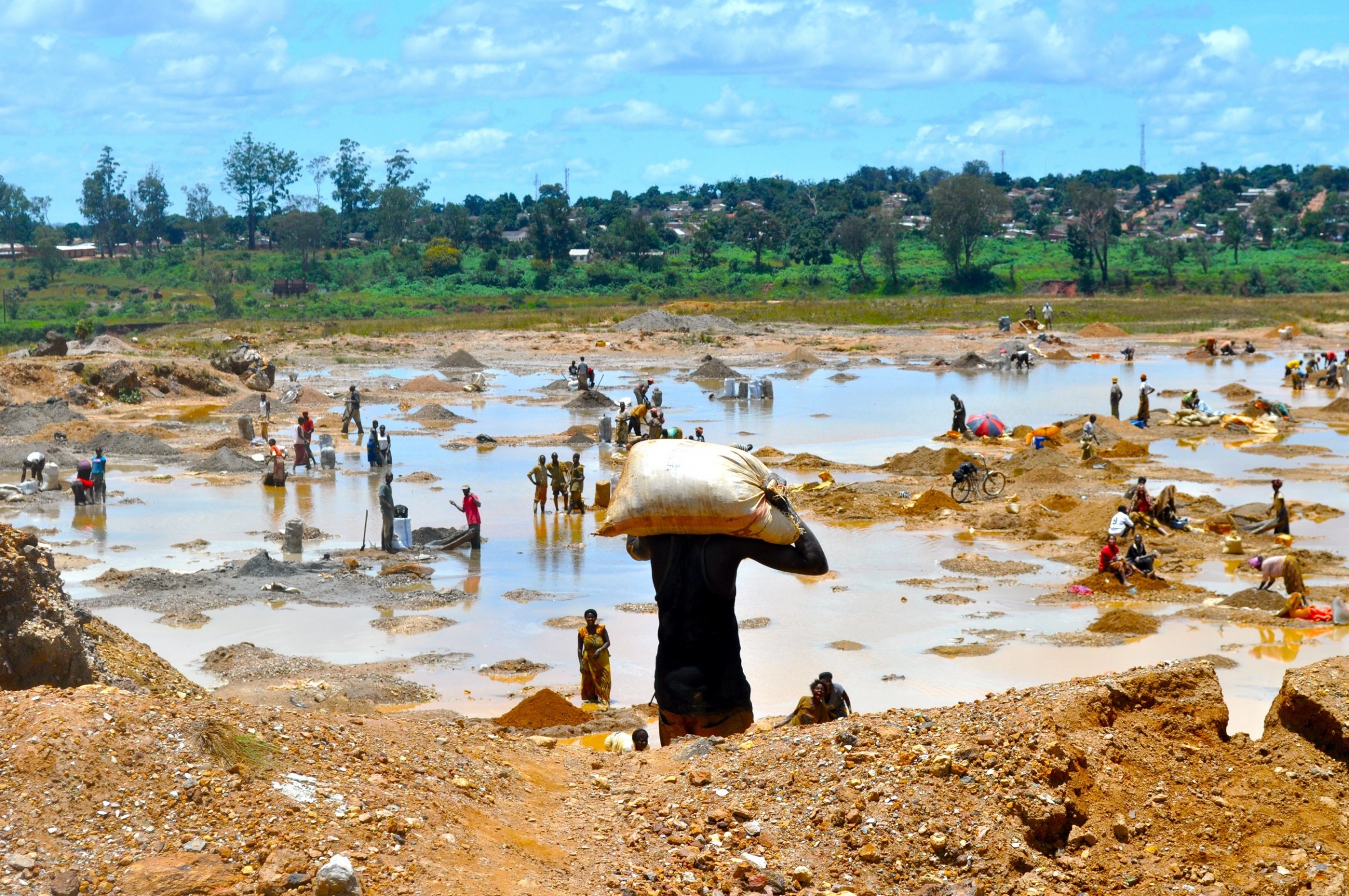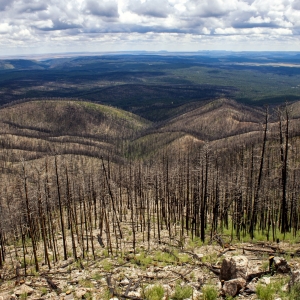The Stream, October 25, 2023: Bottled Water Brand BlueTriton Pressures Lawmakers to Ease Groundwater Protections

Washing copper ore in Democratic Republic of Congo as part of the cobalt production process. Photo courtesy of Fairphone under Creative Commons license Attribution-NonCommercial-ShareAlike CC BY-NC-SA
YOUR GLOBAL RUNDOWN
- Growers in Argentina are celebrating this weekend’s much-needed rainfall, which helped to alleviate widespread drought conditions for wheat and corn fields.
- It has been nearly half a year since rain fell in Bali’s most drought-stricken regions, forcing growers to change their crops as multiple villages face water shortages.
- In Maine, lawmakers’ efforts to protect groundwater aquifers were undermined — and rewritten — by bottled water brand BlueTriton.
- Communities in Uruguay are calling for paper producers to utilize more water-efficient factory processes.
Residents in the ‘world cobalt capital’ of Kolwezi, Democratic Republic of the Congo, face water shortages and displacement due to mining.
“We have no electricity or water here. I have to spend 2,500 Congolese francs [around $1] per day for 10 containers of water…” — Edmond Chansa, a resident displaced by COMMUS and its relocation commission.
About 400 households in Kolwezi, a provincial capital in southern Democratic Republic of the Congo, are being forced to move to make way for a new cobalt mine operated by COMMUS (Compagnie miniere de Musonoie), a mining company from China.
Kolwezi, considered the world’s cobalt capital, has seen increased foreign mining interest in recent years as demand grows for minerals used to make electric vehicles and smart technologies. According to Mongabay, “Kolwezi mine has an annual production capacity of 120,000 tons of copper and 3,000 tons of cobalt.” Last year alone, more than 200 households were relocated in favor of mining.
Per Mongabay, COMMUS is paying each household an average of $80,000 to relocate — some receive more, some less. A lack of transparency regarding these payments has residents concerned.
Moreover, the amount of money has overwhelmingly fallen short in accommodating residents’ moves and new living arrangements. Many are facing electricity and water shortages as they try to stretch their payments. Noise and air pollution from nearby mining operations is nearly unavoidable and the water table has declined.
— Christian Thorsberg, Interim Stream Editor
Recent WaterNews from Circle of Blue
- Hotspots H20: Israel Pledges to Resume Gaza Water Deliveries — Residential areas in Gaza are targeted as the humanitarian cost of the ‘total siege’ rises.
- The $58 Trillion Value of Water: A Conversation with Stuart Orr of WWF — New WWF report estimates the economic value of freshwater ecosystems.
The Lead
A new report from the New York Times details the successful efforts of BlueTriton, the company that owns Poland Spring bottled water, to stymie groundwater protections in Maine.
When lawmakers moved forward with a bill that, in part, puts “a seven-year limit on contracts for large-scale freshwater pumping by corporations that ship water out of Maine,” representatives from BlueTriton proposed an amendment that effectively struck the entire piece of legislation. Days later, the bill was “pulled back” by lawmakers, and its fate currently remains in limbo.
BlueTriton, which has pumping facilities in states across the country, continues to push for longer-term contracts, including some lasting 45 years, the Times reports. Environmentalists and scientists warn that aquifer overuse, especially amidst the uncertainty of a changing climate, is dangerous and will potentially strain local access to fresh water. Anecdotal reports from residents living near BlueTriton pumping stations have already reported their wells running dry amidst periods of drought.
This Week’s Top Water Stories, Told In Numbers
90
Percent of Argentina’s wheat- and corn-growing lands listed under “drought conditions” before this weekend’s much-needed precipitation, Reuters reports. Between one and 3.5 inches of rain fell over a period of 72 hours “in large areas of western Buenos Aires, southeastern Cordoba and southwestern Santa Fe,” offering hope for farmers. According to the Buenos Aires Grain Exchange, up to half of the country’s grains were in “fair to poor condition.”
5
Number of months since rain has fallen in Jembrana, the most drought-stricken regency on the island of Bali, Reuters reports. The severe dry spell continues to impact rice paddy farmers, who are instead beginning to plant more robust corn and other vegetables that will survive through El Niño weather patterns. Meanwhile, the region’s reservoir has been depleted from 8 million cubic meters of water to just 320,000, leaving six villages facing clean water shortages.
On the Radar
In Paso de Los Toros, Uruguay, a new paper mill operated by Finnish ownership is drawing around 129 million liters of water per day from a river estuary, BBC News reports. The new facility cements Uruguay as one of the world’s leading producers in the pulp and paper sector, an industry that has drawn scrutiny from locals and nearby growers who have seen their groundwater availability diminish. In the capital of Montevideo, dramatic water shortages continue to burden the metropolis’ more than one million people. And while the factory doesn’t draw directly from Montevideo’s water reserves, protests and dissatisfaction with the country’s management of water and its accessibility have sparked a new call for paper companies to invest in less water-intensive processes.
In Context: HotSpots H2O: Day Zero Threatens Uruguay’s Capital
More Water News
Wilderness Farming: A new study has found that over the next 40 years, under a “high warming scenario,” northern wilderness areas in Canada, Scandinavia, and Russia will become newly suited to grow crops, Yale Environment 360 reports
West Antarctica: New research has labeled the West Antarctic ice shelf’s melting as “unavoidable,” a process which would guarantee continued sea level rise around the world, CNN reports.
Christian Thorsberg is an environmental writer from Chicago. He is passionate about climate and cultural phenomena that often appear slow or invisible, and he examines these themes in his journalism, poetry, and fiction.






Leave a Reply
Want to join the discussion?Feel free to contribute!